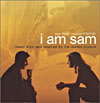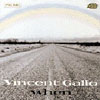
This Week: Wilco's almost lost record, a disc of Beatles' covers, and Gallo's careful craft.
Wilco
Yankee Hotel Foxtrot (Nonesuch)

Yankee Hotel Foxtrot is the album that Reprise, Wilco's former label, refused to release last year, declaring it unmarketable before selling the master tapes back to the band and then freeing them from their contract. Whether the label executives truly felt threatened by the record or whether they were looking for an excuse to unload a mid-level band, the delay has done wonders for Jeff Tweedy's reputation as a troubled romantic genius. Dozens of critics picked Yankee Hotel Foxtrot as one of the best albums of last year, based entirely on web downloads and bootlegs.
Much of that is earned: Yankee Hotel Foxtrot is an astounding record. Tweedy is more confident of his pop leanings here than ever before, and there are far more catchy melodies here than on Summerteeth, Wilco's previous effort, which introduced this lush, orchestrated pop melancholy after two solid records of fun country rock.
But where Summerteeth sounded like the drug-choked confessions of a man poised for an emotional breakdown, Yankee Hotel Foxtrot is elegiac and nostalgic. It's tough to make out just what Tweedy means when he sings, "I would like to salute/the ashes of American flags/and all the falling leaves/filling up shopping bags," but the tone is unmistakable. This is an epic record, a meditation on Big Ideas like America and Jesus and love and war (and there's a hint of prophecy, too, since all this was recorded before the terrorist attacks of Sept. 11). It lacks the sense of personal desperation of Summerteeth, but it has a stately dignity that only a top-notch band could pull off.
There's no doubt that Tweedy and the rest of the band—despite the departure of longtime guitarist Jay Bennett and the occasionally silly, unnecessarily oblique lyrics—have pulled this off. Yankee Hotel Foxtrot doesn't quite live up to its billing as an almost-lost masterpiece, but it's an accomplished record from a band that's never sounded so assured.
—Matthew T. Everett
Various artists
I Am Sam (BMG)

I Am Sam follows a mentally challenged man named Sam, played by Sean Penn, on a crusade to regain custody of his daughter. Sam is dependent on the colloquial wisdom of the Beatles' music to guide his emotions during the film. Because Director Jessie Nelson was unable to acquire the original Beatles' recordings for the soundtrack, the songs get treatment from artists more likely to be heard on National Public Radio than Total Request Live. And given that The Beatles have influenced essentially everyone since 1964, hearing one of their song interpreted by another artist is as familiar as the original recordings themselves. According to Rolling Stone, "Yesterday" alone has been covered more than 2,500 times. On the soundtrack, Eddie Vedder trades mumbles for melody with "You've Got to Hide Your Love Away," Ben Harper preserves the psychedelic energy of "Strawberry Fields Forever," and Sarah McLachlan offers a beautiful "Blackbird." The covers chosen are well suited for each artist, but the album stumbles when a classic is "re-envisioned." Grandaddy hammers through "Revolution," while Chocolate Genius falters on "Julia." Overall, the album is well produced, considering it took less than three weeks to record. However, you'll do better to dig out the Beatles' LPs and remember why the I Am Sam soundtrack covers the same ground that made Paul McCartney a billionaire.
—Clint Casey
Vincent Gallo
When (WARP)

Bedroom music. Music that's made and (best) played in the bedroom. It's what WARP Records does best. Now for over a decade WARP has been producing records that are intimate, engaging, challenging, somewhat irritable, yet ultimately satisfying. That's why it comes as no surprise that Vincent Gallo's debut solo-LP When bears the WARP seal of approval.
No matter what your opinion is of Gallo (maverick, charlatan, asshole) you can't deny his work. Whether directing in film (Buffalo '66) or composing music, Gallo is very careful about his craft. So much so that you would think that—upon hearing this disc—his means to an end would make Stanley Kubrick proud. In fact, Gallo's When exhibits a rare form of simplicity and sincerity that's more than welcome in the current expanse of "popular music."
At times, Gallo's songs can occupy a space that borders on a genuine moment or a complete farce (depending on who you ask). The album's standout track "Honey Bunny" represents this idea. Not many artists could emote "Oh Darling, you're my darling..." without busting a gut or feeling somewhat "funny" about it. Yet Gallo delivers this song (as well as this entire release) with such a focused and controlled intensity that it makes you think that perhaps Vincent Gallo should take a break from recording. Let's hope not. Any great piece of work needs to bear witness to the artist's sense of struggle, survival, and longing. When is a perfect example of artistic expression that's both honest and difficult. It's simply beautiful.
—Ryan Collins

May 9, 2002 * Vol. 12, No. 19
© 2002 Metro Pulse
|